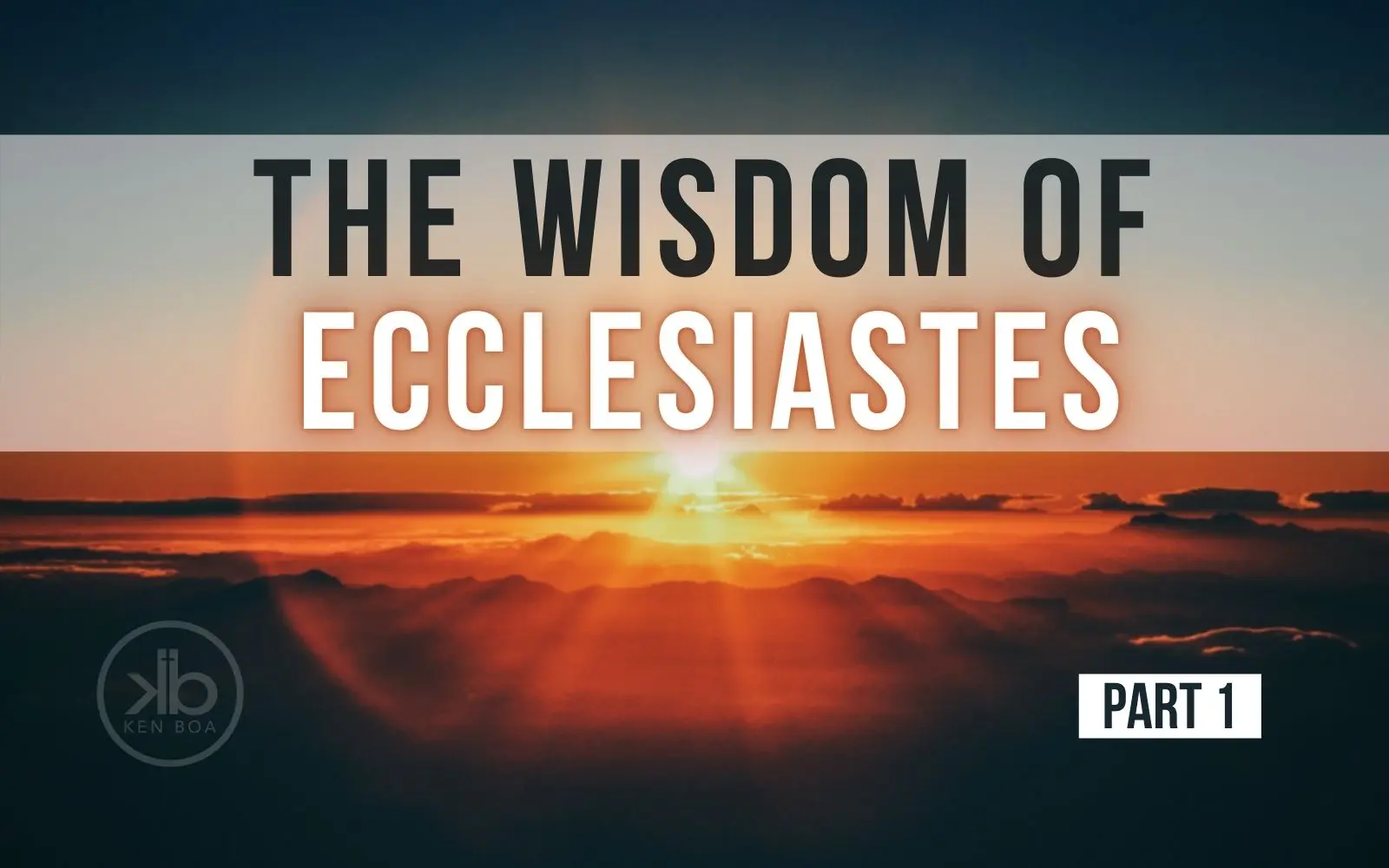How does the wisest man in the Old Testament come to spend most of his life acting like a fool?
That is exactly what happened to King Solomon. God granted him “a wise and discerning heart, so that there has been no one like you before you, nor shall one like you arise after you” (1 Kings 3:12). Nevertheless, Solomon fell into a profligate lifestyle. He disobeyed the three prohibitions for kings (Deuteronomy 17:16–17), accumulating for himself power, women, and wealth. Like many kings after him, Solomon also left his heart open to pride by failing to copy down the words of the Torah to meditate on it day and night (Deuteronomy 17:18–20).
So how did Solomon’s wisdom degenerate into such foolishness? And how do we avoid the same error? Solomon’s own testimony in Ecclesiastes gives us the answer.
The Futility of Life
Solomon was well qualified to speak on the topic of wealth, power, and prestige. After all, he spent most of his life accumulating these things. But as it turns out, these things for which the world longs did not bring Solomon contentment. Instead, they led him astray.
“Vanity of vanities,” says the Preacher. “Vanity of vanities! All is vanity.” (Ecclesiastes 1:2)
The “Preacher” in Ecclesiastes identifies himself as King Solomon (Ecclesiastes 1:1, 12). And his primary message is that everything “under the sun,” no matter how valued by the world, is “vanity.” Futile. Meaningless.
To prove his point, Solomon appeals to the apparent cyclical nature of things (birth, growth, decay, death). He also appeals to his personal experience, describing how he sought meaning in everything “under the sun”—wealth, pleasure, women, prestige, wisdom, folly. All of it, he declares, came to nothing. The inevitability of death and the injustice of the world render everything meaningless.
How Do We Escape Futility?
Fortunately, futility is not the final word of the Preacher. There is indeed a futile emptiness of trying to find meaning and satisfaction “under the sun.” But when we fear the One who is above the sun, our futility is transformed into a living hope.
I know that there is nothing better for [a person] than to rejoice and to do good in one’s lifetime; moreover, that every man who eats and drinks sees good in all his labor—it is the gift of God. (Ecclesiastes 3:12–13)
The conclusion, when all has been heard, is: fear God and keep His commandments, because this applies to every person. (Ecclesiastes 12:14)
From a human perspective, life appears to be empty. We live in a fool’s paradise if we think that possessions, pleasure, prestige, popularity, promotion, power, or performance will satisfy our longings in this world. That is why we need to adopt the divine perspective: to revere God (12:14) and see life as a daily gift from Him (3:12–13). Only then does life have meaning and purpose.
Want a copy of the slides Ken used in this video? They are available as part of Ken’s Talk Thru Ecclesiastes resource.
Watch more videos from Ken’s Monday night study here.



